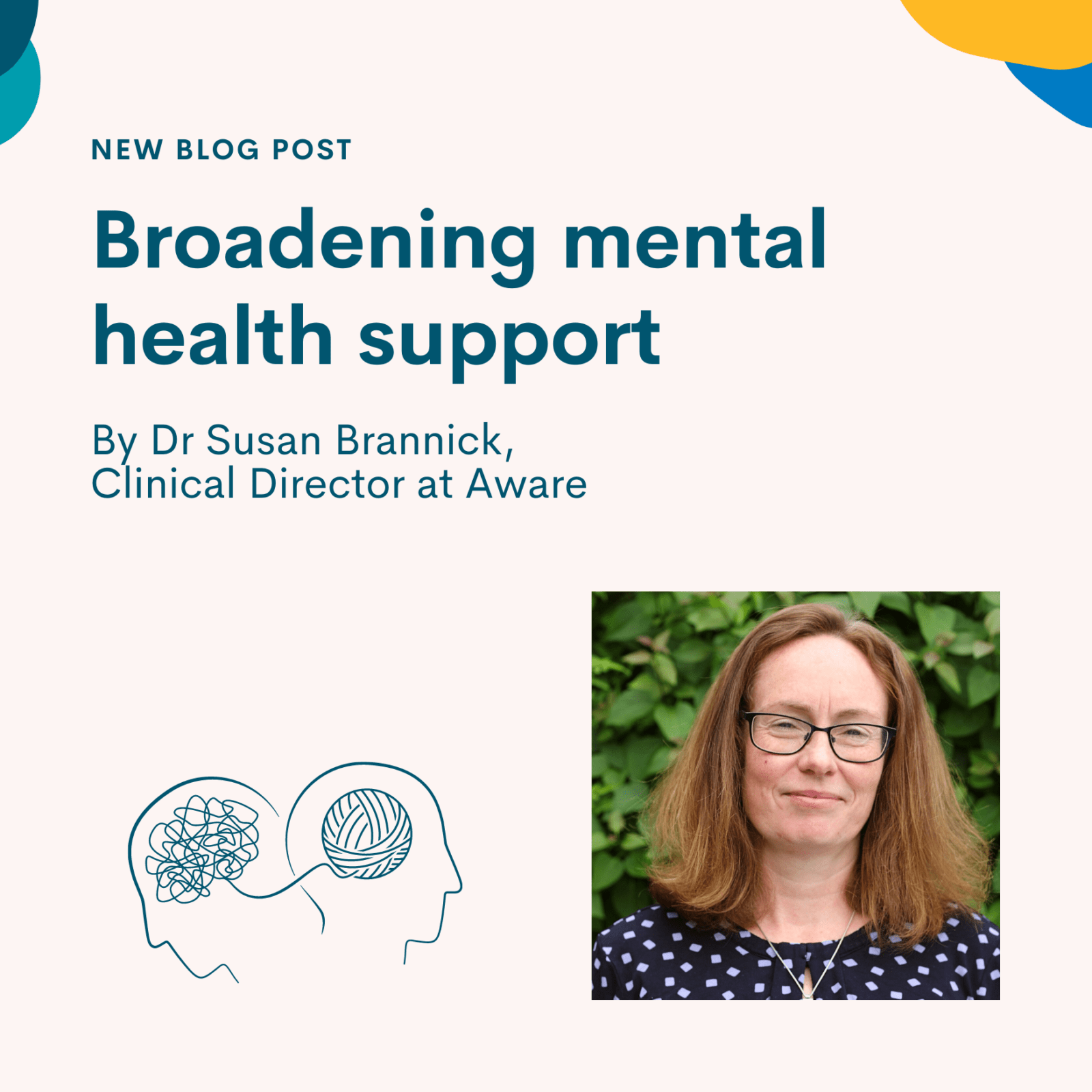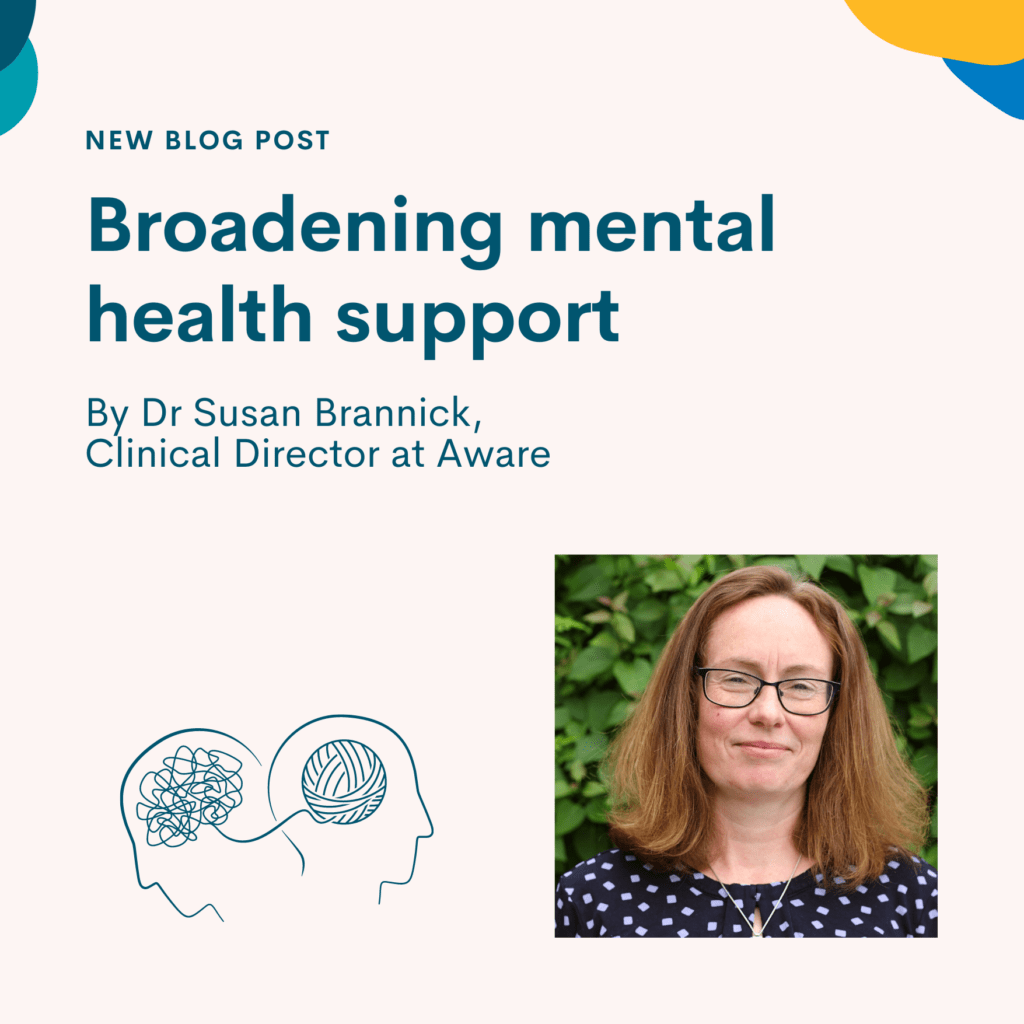
Broadening mental health support: A review of a recent report advocating the need to move beyond a biomedical approach and emphasising the importance of recognising the social, psychological and economic determinants of mental health.
An interesting report was published this month from the Beyond Pills All-Party Parliamentary Group, in the UK, calling for an overhaul of the mental health system and the ‘over reliance on psychiatric medications’. The authors which include lead author, James Davies and Lucy Johnstone argue that how we have sought to understand and treat mental health difficulties over recent years has not been effective and they call for urgent reform of the current biomedical approach to mental health services, underlining the importance of social, psychological and economic determinants of mental health.
Drawing from figures from the NHS Independent Mental Health Taskforce, authors posit that mental health outcomes have deteriorated in recent years and mental health disability has trebled over the last 40 years. Despite concurrent biomedical advancements in society over the last 40 years, psychiatric medications show no improved benefit compared to initial agents developed 50 years ago. They argue that the mental health system has failed its services users and this failure had added a financial and emotional burden.
Not solely limited to a resource problem, this paper urges a rethink of the current dominant biomedical approach to mental health, that has ‘over medicalised’ normal emotional experiences and side-lined social and environmental sources of mental health difficulty in favour of a ‘symptoms management model’.
Whilst much of this data is based on UK figures, the WHO and the UN also stress the importance of psychosocial determinants of mental health, arguing that in ‘many cases mental health problems are an understandable response to life circumstances, social, relational and psychological adversities that relate to emotional harm’.
So perhaps we are all in the same sea, but maybe in different boats.
The WHO points to the substantial body of evidence that highlights the role of social factors in mental health including inequality, socioeconomic disadvantage, housing, financial stress, discrimination and early childhood adverse events for instance. They also highlight the role of relational deprivation that includes bullying, early trauma, neglect and loneliness for example. They argue that medicating the consequences of these factors has proven to be ineffective and call for change.
The authors argue the following principles should be adopted.
That mental health problems are mainly about our circumstances and relationships and arise predominantly from our social relationships. That mental health problems are exacerbated by societal messages and ultimately that psychiatric medications should be used with caution and overprescribing reduced.
The group call for several interesting actions which can be found in the original paper and are to a degree, specific to the UK context. However of note, they call for a decrease in unnecessary prescribing of psychiatric medications. A recent study exploring antidepressant use during 2016 – 2020 for medical care holders in Ireland (about 1/3 of the overall population) found a steady increase in these prescriptions with commensurate long term use which authors conclude could indicate a chronic problem of depression, or the lack of appropriate withdrawal interventions. The Beyond Pills group advocate for the establishment of a phoneline and website to facilitate withdrawal from psychiatric medication as one of their calls to action.
Another interesting call to action is around education. They advocate for the integration of ‘Social Emotional Learning’ (SEL) into the school curriculum. This relates to the high rates of diagnosis of mental health difficulties in children and the impact of these difficulties on ‘relationships, education and longer term prospects’. SEL is a skills based approach that is centred on 5 key areas; self-awareness, self-management, social awareness, relationship skills and responsible decision-making and has a reasonably good emerging evidence base to indicate it reduces emotional distress and improves academic performance. It essentially offers a good grounding in core mental health skills. They argue this should be located in a whole systems approaches that includes all education staff, students, parents and community organisations in order to address social and economic adversity.
A recent review of this programme for a number of students across Ireland showed promising results, although it is not widely adopted across the country.
Whilst the original report is based on a UK setting, it does give pause for thought on how mental health services are organised here in Ireland and how we make sense of emotional and psychological wellbeing. If we understand mental health difficulties as predominantly relating to relationships and life circumstances, then this would suggest an urgent need for policy makers and those in power to really look at what we are offering people who need mental health support. This is also highly relevant to children and adolescent mental health services (CAMHS) as well as adults and older adults.
An independent review of CAMHS across the country, conducted last year offers several recommendations based on their findings of very serious and concerning service gaps in young people’s mental heath services. These included the need to offer alternative models of care, which meaningfully incorporate a multi-disciplinary approach to mental health. This is aligned to the Beyond Pills group, in that it is seeking a move beyond medicating symptoms to understanding the social and psychological aspects of mental health and addressing these.
Here is Aware, we continue to offer social and educational support to people experiencing depression, bipolar and anxiety, and strive to meet people where they are, both emotionally and in local community. We also recognise the value and importance of medication for many people, and the significant benefits this offers as part of mental health management.
For anyone interested in hearing more from one of the authors of the above report, Lucy Johnstone, you can watch her webinar with Aware here, which interestingly has been one of most popular webinars in the last year, suggesting again perhaps there an appetite here in Ireland for an understanding and response to mental health that takes into account social circumstances and relationships, both early and current.
This month also sees the opening of the Solace Café , which offers community support to people experiencing a mental health crisis. You can find more information on this service here.
This blog is by Dr Susan Brannick, Clinical Director at Aware as part of a monthly blog series.


